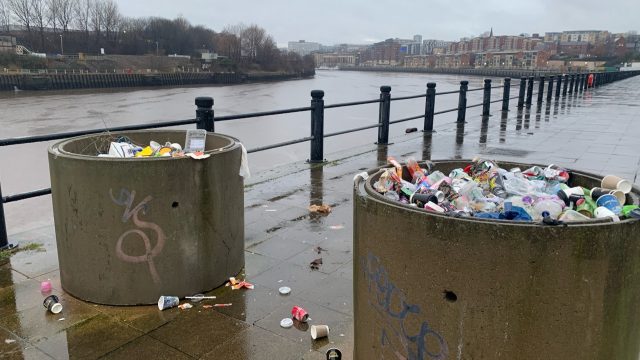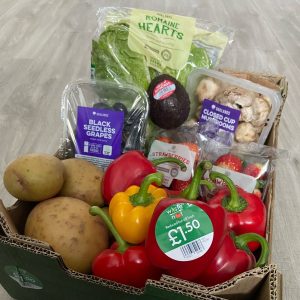#FoodWasteActionWeek
March 3, 2021 3:52 pm
We’re joining Love Food Hate Waste in raising the awareness of the impact food waste has on the environment during Food Waste Action Week (1st – 7th March).
Food waste is one of the biggest contributors to climate change. It exacerbates food inequalities and wreaks havoc with the economy. It’s one of the biggest environmental and social challenges we face on the planet. We love food so much, we simply can’t bear to see it get wasted. We see preventing food waste as a unique opportunity to save money whilst helping the planet, and through enjoying food we can engage people to make real change.
One third of the world’s food supply is wasted. This has devastating consequences on the environment and the economy through the natural resources, fuel and money required for its production. When we send food to landfill it is broken down anaerobically to release methane – a greenhouse gas twenty-one times more potent than CO2. In the UK alone, we waste an estimated 13m tonnes of food per year from farm to fork to bin, with an associated price tag of over £20 billion.
What are we doing in Newcastle?
As a member of Sustainable Food Places we’re passionate about reducing food waste, and the impact it is having on the environment. We want Newcastle to be a city where food waste is minimised, through preventing food waste and re-distributing surplus food. Our partners at Project Bind, and Fareshare North-East do a fantastic job of re-distributing surplus food to voluntary organisations across the city, who are able to use it to produce tasty meals and share it with local residents.
Take a look at the NCL Food Waste Environment report for more information.
What can I do to take action on food waste?
- Look for yellow label reduced stickers on foods at the supermarket, or wonky-veg boxes, and rescue food that may end up being wasted by buying it at a reduced price.
- Set aside at least one day per week to cook using leftover ingredients, you can take inspiration from online recipes.
- Make sure your fridge is set to 3 degrees, as this makes food last 2 days longer on average.
- Keep a record of the most wasted foods in your house, and try and identify the causes by reducing portion sizes and storing foods better.
- Best before dates are only advice, and refer to the quality of the food, most foods will still be good to eat after this date. Use-by dates are the important ones that refer to the safety of the food.
- Try composting your food waste at home and use the compost to grow new foods.
- Save food that would have otherwise gone to waste by buying food through a redistribution company such as ‘Too Good To Go’ or ‘OLIO’ or ‘Magic Hat Cafe’.
Let us know what you’re doing to combat food waste!
Categorised in: General News
This post was written by Coordinator


